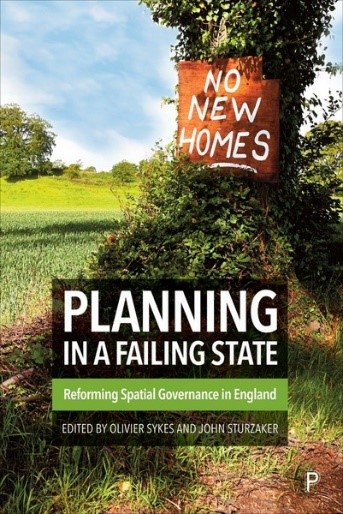
We’re delighted to introduce our regular ‘Books of the month’ feature where we spotlight new releases authored by University of Liverpool staff.
If you’d like your publication to be featured, please email the details to the Research Communications Team at rescomms@liverpool.ac.uk.
Planning in a Failing State: Reforming Spatial Governance in England
Edited by Olivier Sykes and John Sturzaker
Olivier is the Lead for Planning in the Department of Geography and Planning at the University of Liverpool and John is at the University of Hertfordshire. Their new book analyses the state of the planning system in England and offers a robust, evidence-based review of over a decade of change since the Conservative-led coalition government came to power. With a critique of ongoing planning reforms by the UK government, the book argues that the planning system is often blamed for a range of issues caused by ineffective policy making by government.
Olivier and John have also written a blog discussing some of the issues raised in the book and some of the current planning debates circulating in UK politics.
Artists Remake the World: A Contemporary Art Manifesto
A BBC New Generation Thinker and Philosophy lecturer here at Liverpool, this is Vid Simoniti’s first book. He explores the relationship between contemporary art, politics, and activism in the twenty-first century and looks at how artists such as Ai Weiwei, Olafur Eliasson, Wangechi Mutu, Naomi Rincón Gallardo, and Hito Steyerl have attempted to offer bold solutions to the world’s problems.
Non-Ideal Epistemology
Robin also lectures in the Philosophy department at Liverpool. His new book develops a non-ideal approach to epistemology that synthesizes insights from feminist epistemology, naturalized epistemology, and Charles Mills’ critique of ideal theory in political philosophy. He applies this approach to a range of issues in applied and social epistemology, including public ignorance, the value of intellectual autonomy, and our obligations to each other in inquiry.


